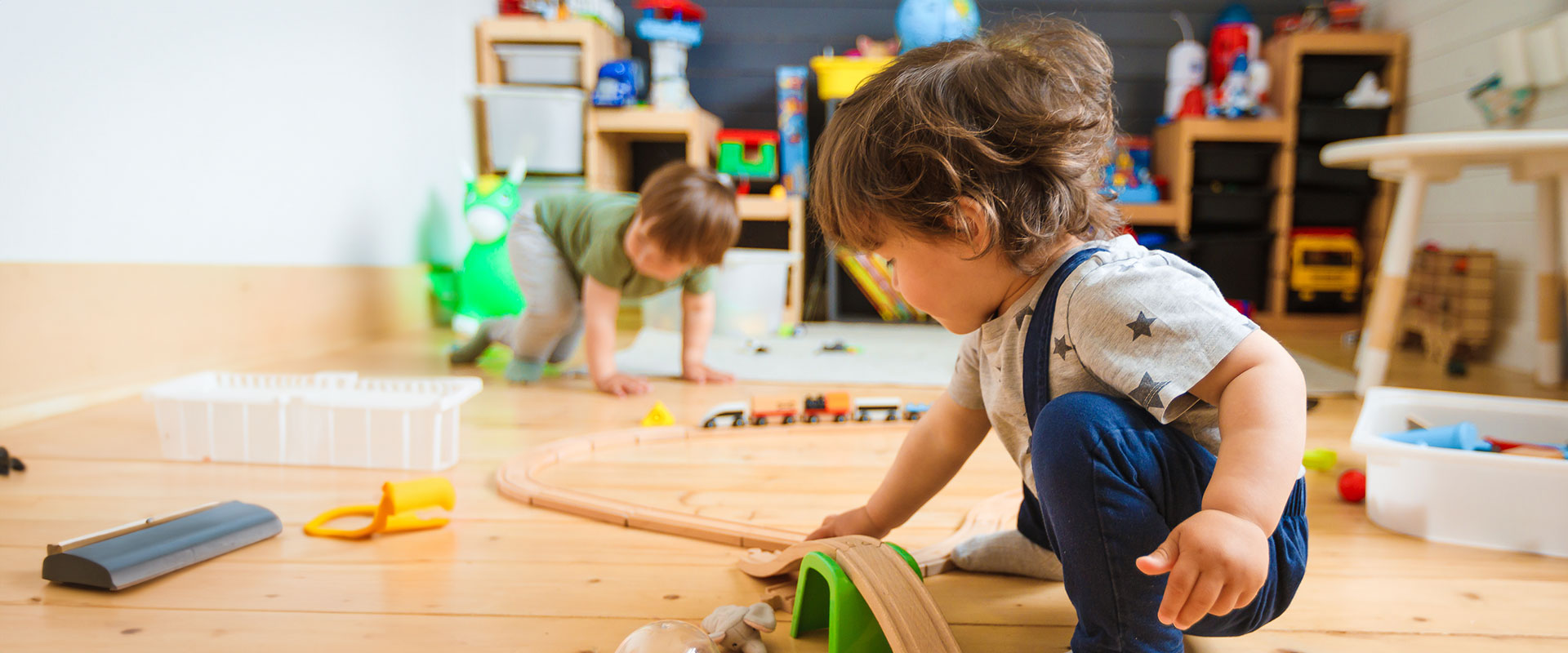8 Ways to Support Learning at Home

As parents, we wear many hats - from Saturday pancake makers to game chauffeurs, nurses to storytellers, swimming coaches to teddy tea party guests. Perhaps, one of the most rewarding roles is being our child's first teacher. In this article, Bright Horizons parent panellist, Daria, shares some of her favourite ways to support her 4-year-old's learning journey - inside and outside nursery.
Supporting our 4-year-old's learning and development isn't just about academic achievements or ticking off milestones; it's about encouraging a lifelong love for exploration, discovery, and creativity. Questions is something we highly welcome and encourage in our home.
- Create a Learning Environment
Set up a designated learning space at home where your child feels comfortable and inspired. This doesn’t have to be a large area – a little corner in their bedroom or a living room will do. Keep it stocked with age-appropriate books, puzzles, art supplies, and educational toys. For example, we have a basket with musical instruments only, or even wooden puzzles or alphabet games. We create more space by regularly recycling toys our child doesn’t play with anymore; it is important to remember that children at different stages have different interests.
- Embrace Everyday Learning
Learning doesn't always happen through structured activities. Embrace everyday moments as opportunities for growth. For example, your child can learn by getting involved in routine or even seemingly mundane activities, from helping with laundry and breakfast preparation to exploring nature on their way home from nursery. For example, by exploring historical gardens every Sunday, we often learn about our history as well as types of plants and trees, why they are important for clean air, and what type of food birds eat – the list is endless! Whether it's counting apples in a shop, identifying shapes in the clouds, or exploring insects at the park, we always encourage our child to observe, discuss, and very importantly – ask lots of questions.
- Reading Recommendations
Reading together is one of the simplest yet most powerful ways to support your child's learning. Reading books has helped us not only encourage our child to learn and think critically, but also connect and bond. We have a shelf filled with books our child enjoys the most, and we give him a choice to pick every evening. Even if your child is very young, don’t shy away from reading books that are aimed at slightly older children – you never know what your child will enjoy the most until you give it a try. Books also don’t have to be expensive – we often buy at local charity shops.
- Educational Games and Activities
Make learning playful with educational games and activities tailored to your child's interests. Learning can be done while having fun! We often play with homemade playdough and all sorts of shapes, which enables our child to learn about shapes, numbers and even letters. We also enjoy making and painting butterfly feeders, bug hotels, letter-shaped biscuits, clay, arts and crafts from recycled materials and when outside, building dens, watching and learning about insects or counting various objects like flowers, trees and leaves.
- Outings and Adventures
This is possibly our favourite. We take learning beyond the walls of our home with exciting outings and adventures like local museums, zoos, botanical gardens, and even local parks or commons. We’ve noticed that this really ignites our child's curiosity about the world around them. We also love this because it’s an opportunity to exercise, spend energy and get some fresh air. On certain days, it’s a short bike ride, and sometimes it’s a miles-long exploring trip through the local woods or seaside. The world is your oyster!
- Chores-Turned-Fun
We love to turn everyday chores into fun and educational moments. Things like setting the table, watering plants, or sorting laundry are good examples. Not only does this teach valuable life skills, but also helps our child develop more independence and foster a sense of purpose. We’ve noticed that our child enjoys helping and having a sense of ‘busyness’.
- Unleash Creativity
There are days when no one is up for big activities or outings, or the weather isn’t great – those days are perfectly fine, too. Just playing your/your child’s favourite music and having a dance party can lift the spirits (and heart rates). Dance parties also offer children an opportunity for self-expression and emotional development. These days are also perfect for arts and crafts.
- Connect with Other Parents
There are many fantastic tips we have received from fellow parents. We have joined various local parent-child groups, playdates, or online communities and groups where we have exchanged some valuable tips and even sought support. Here’s another Parent Panel article on the importance of connecting with other parents…
I hope you’ll be inspired by what I’ve shared and encouraged to find fun and learning opportunities wherever you go, even if you’re just at home. Remember, the world and everything in it is still so new and mysterious to your curious little learner – how exciting!
To find out more about our wonderful Parent Panel, including Daria, visit our Parent Panel page!





